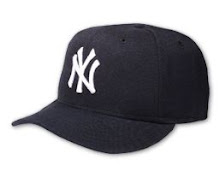 |
| Circa 1998: "Steroids? What are steroids?" |
It's finally official at last, MLB has suspended Alex Rodriguez and 12 others for their involvement with Biogenesis of America. Those 12 others accepted a 50 game suspension. A-Rod, on the other hand, is expected to appeal the 211 games he was slapped with.
The suspensions take effect on August 8 giving time to file an appeal. It also means that A-Rod will get 49 regular season games this year and 162 next year as well as any post-season games. According to FOXSports' Ken Rosenthal, A-Rod got the big body slam because he was "using PEDs, including testosterone and HGH, over multiple years and obstructing and frustrating its investigation."
Commissioner Bud Selig who dragged his feet so long his shoes wore out, released the following statement about all of the suspensions:
“Major League Baseball has worked diligently with the Players Association for more than a decade to make our Joint Drug Program the best in all of professional sports. I am proud of the comprehensive nature of our efforts – not only with regard to random testing, groundbreaking blood testing for human Growth Hormone and one of the most significant longitudinal profiling programs in the world, but also our investigative capabilities, which proved vital to the Biogenesis case. Upon learning that players were linked to the use of performance-enhancing drugs, we vigorously pursued evidence that linked those individuals to violations of our Program. We conducted a thorough, aggressive investigation guided by facts so that we could justly enforce our rules.The "Dirty Dozen" that accepted a 50 game ban are Francisco Cervelli, Nelson Cruz, Jhonny Peralta, Everth Cabrera, Antonio Bastardo, Jordany Valdespin, Fernando Martinez, Jesus Montero, Cesar Puello, Sergio Escalona, Fautino De Los Santos, Jordan Norberto.
“Despite the challenges this situation has created during a great season on the field, we pursued this matter because it was not only the right thing to do, but the only thing to do. For weeks, I have noted the many players throughout the game who have strongly voiced their support on this issue, and I thank them for it. I appreciate the unwavering support of our owners and club personnel, who share my ardent desire to address this situation appropriately. I am also grateful to the Professional Baseball Athletic Trainers Society and our club physicians, who were instrumental in the banning of amphetamines and whose expertise remains invaluable to me. As an institution, we have made unprecedented strides together.
“It is important to point out that 16,000 total urine and blood tests were conducted on players worldwide under MLB Drug Programs in 2012. With the important additions of the HGH testing and longitudinal profiling this season, we are more confident than ever in the effectiveness of the testing program. Those players who have violated the Program have created scrutiny for the vast majority of our players, who play the game the right way.
“This case resoundingly illustrates that the strength of our Program is not limited only to testing. We continue to attack this issue on every front – from science and research, to education and awareness, to fact-finding and investigative skills. Major League Baseball is proud of the enormous progress we have made, and we look forward to working with the players to make the penalties for violations of the Drug Program even more stringent and a stronger deterrent.
“As a social institution with enormous social responsibilities, Baseball must do everything it can to maintain integrity, fairness and a level playing field. We are committed to working together with players to reiterate that performance-enhancing drugs will not be tolerated in our game.”







No comments:
Post a Comment